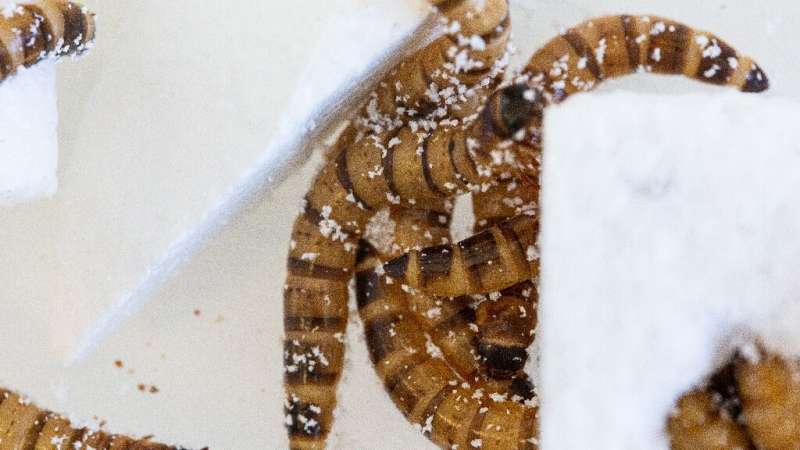Science Daily June 9, 2022
Polystyrene is among the most common forms of plastic, but recycling it is not easy and the vast majority ends up in landfills or ocean. Researchers in Australia discovered that superworms can survive on a sole polystyrene diet, and even gain a small amount of weight—compared to a starvation control group. They analyzed the microbial gut community and found which gene-encoded enzymes were involved in degrading the plastic. One way to put the findings to use would be to provide super worms with food waste or agricultural bioproducts to consume alongside polystyrene. But while breeding more worms for this purpose is possible, they are creating recycling plants that mimic what the larvae do, which is to first shred the plastic in their mouths then digest it through bacterial enzymes. Their goal is to take the super worms out of the equation, and find the most efficient enzymes, then enhancing them further through enzyme engineering…read more. Open Access TECHNICAL ARTICLE

… Zophobas morio darkling beetles — whose larvae are known as ‘superworms’ — are eager to dine on stryofoam, and their gut enzymes could hold the key to higher recycling rates.
Credit: Microbial Genomics, 2022; 8 (6)